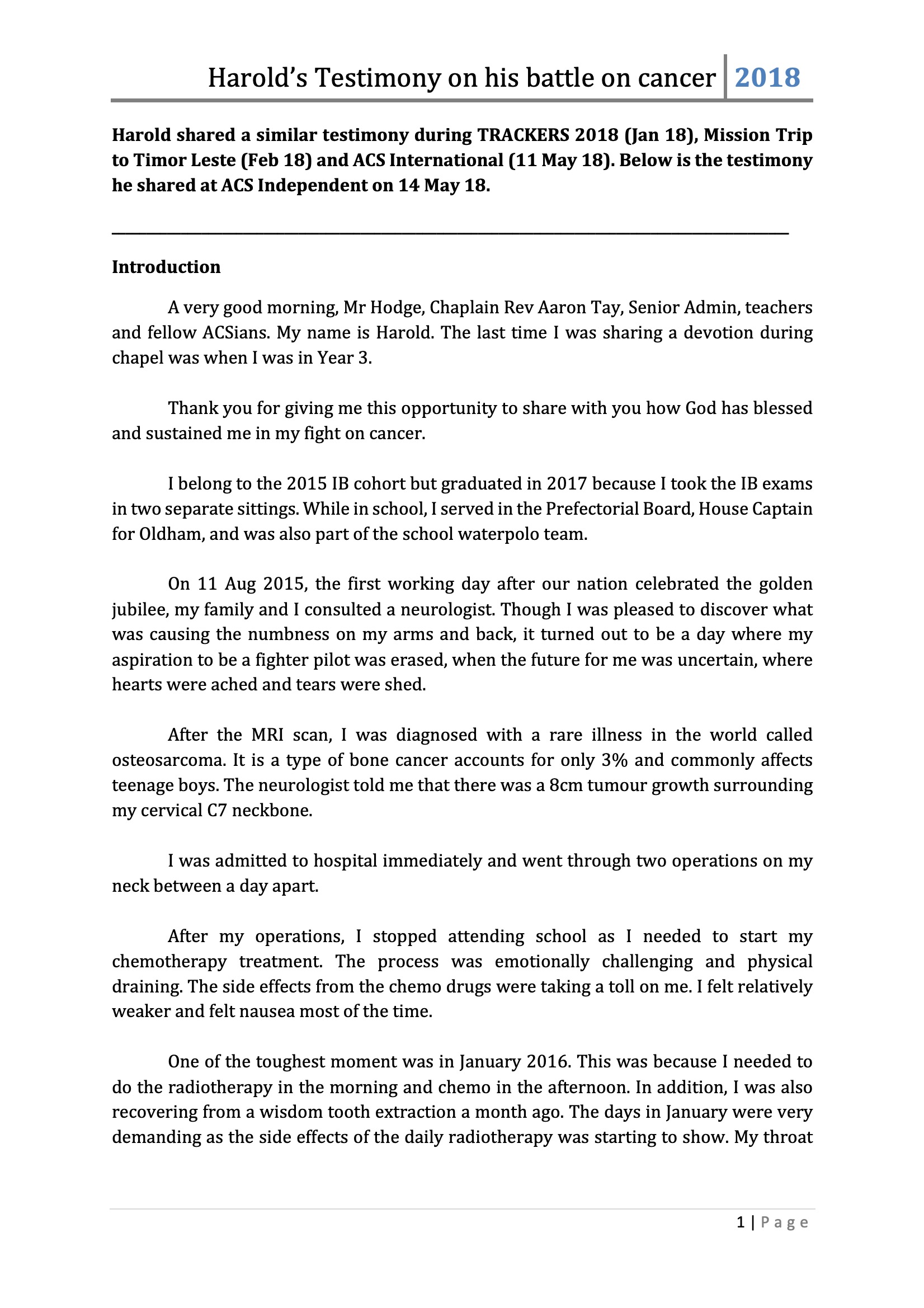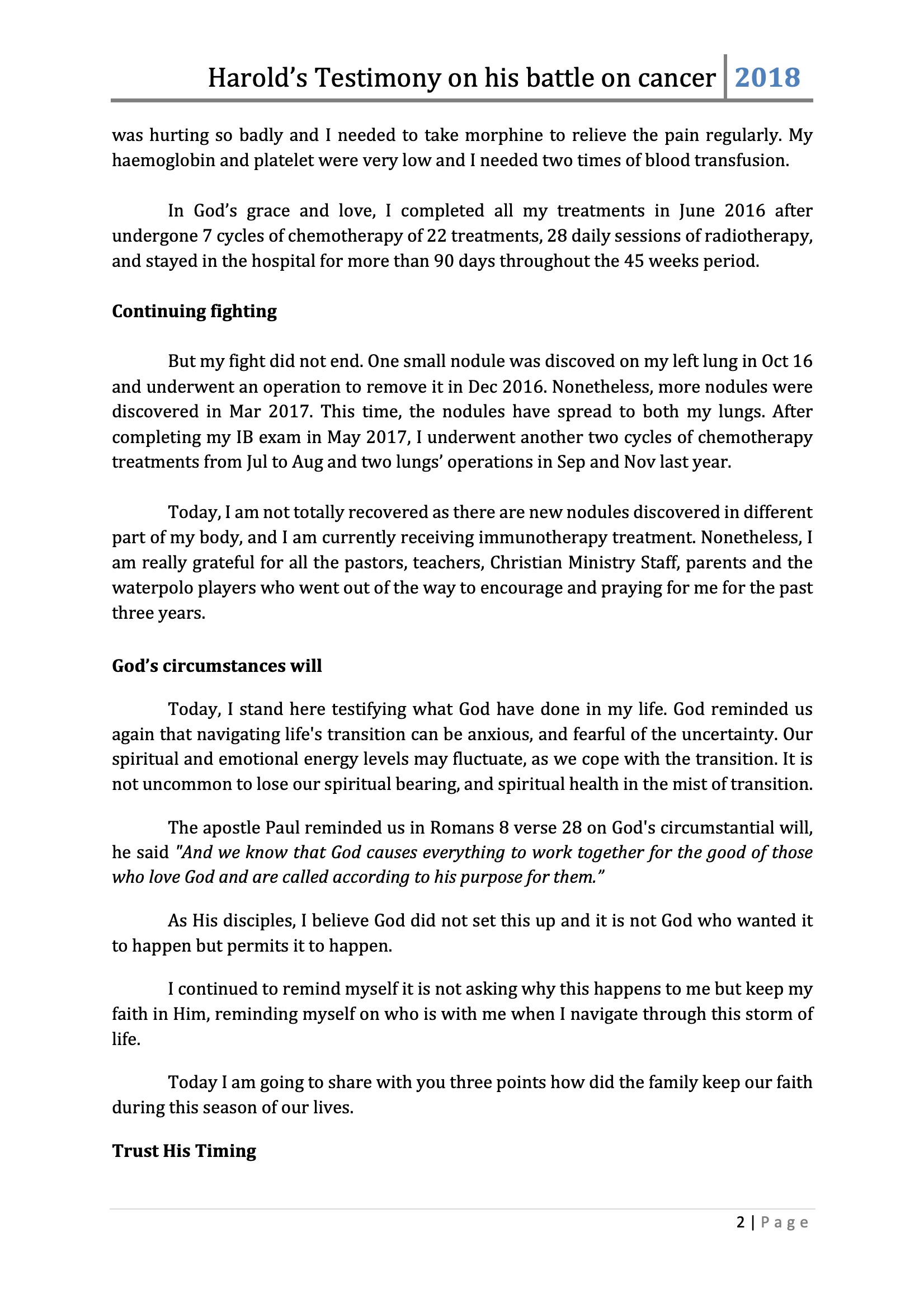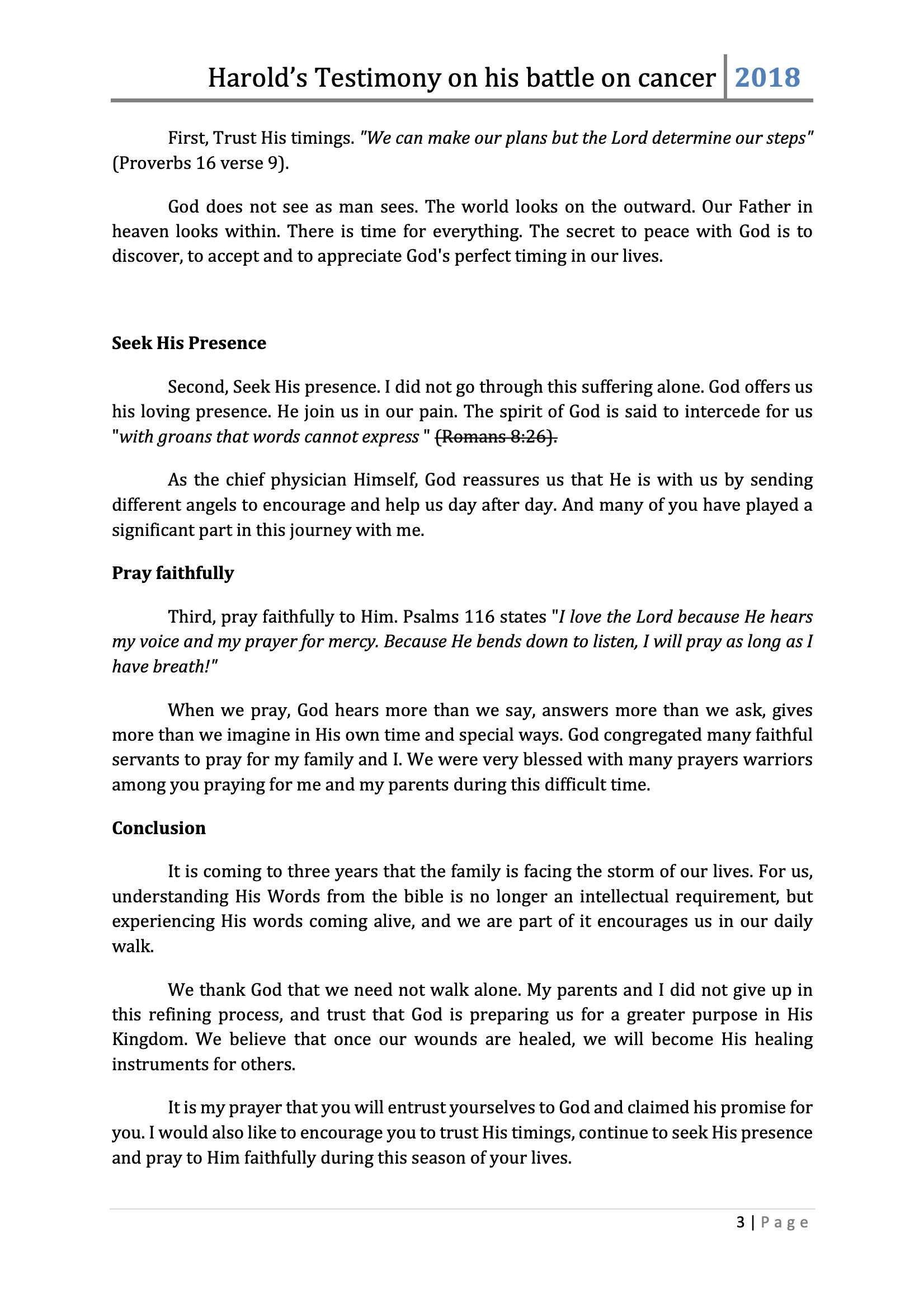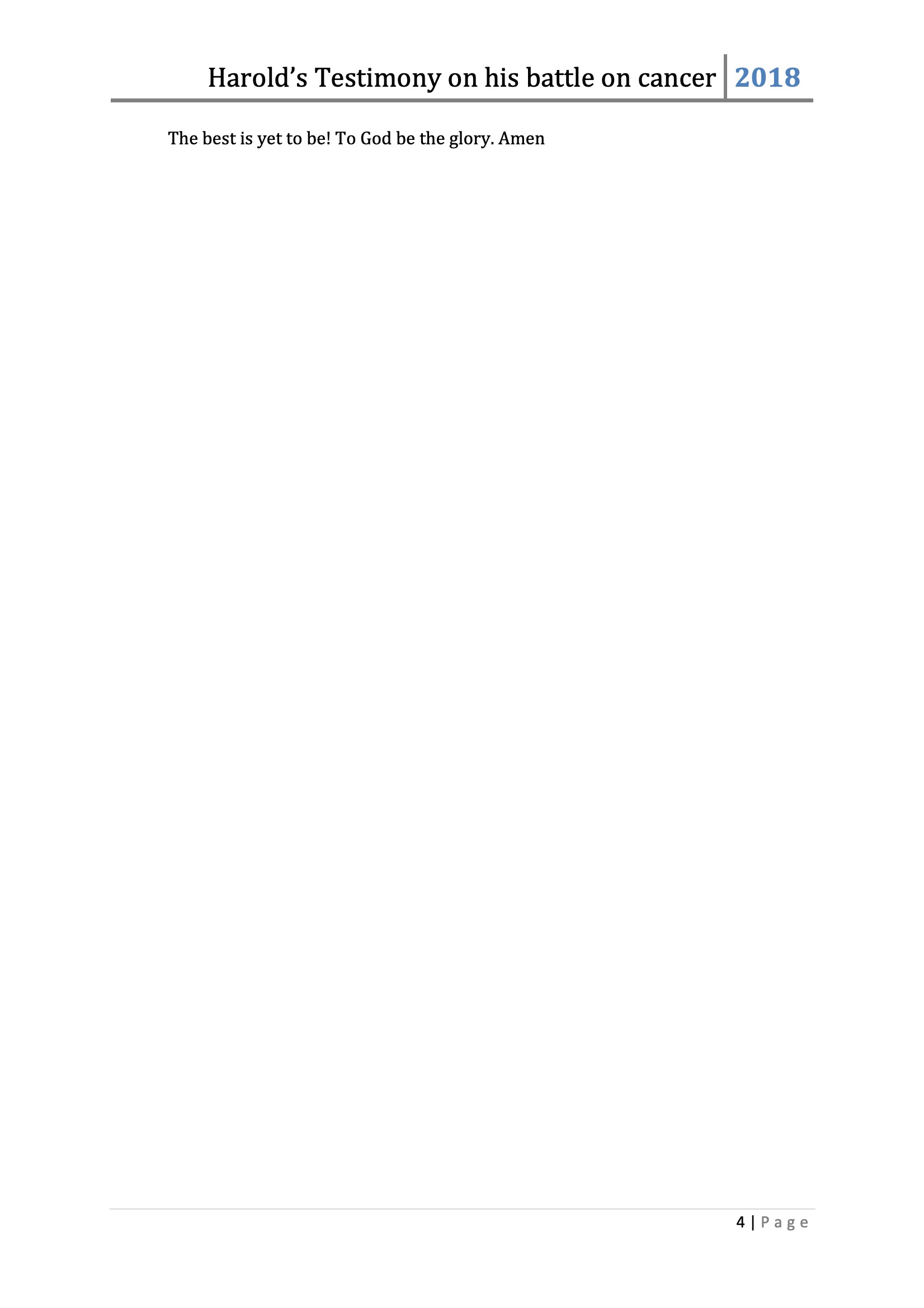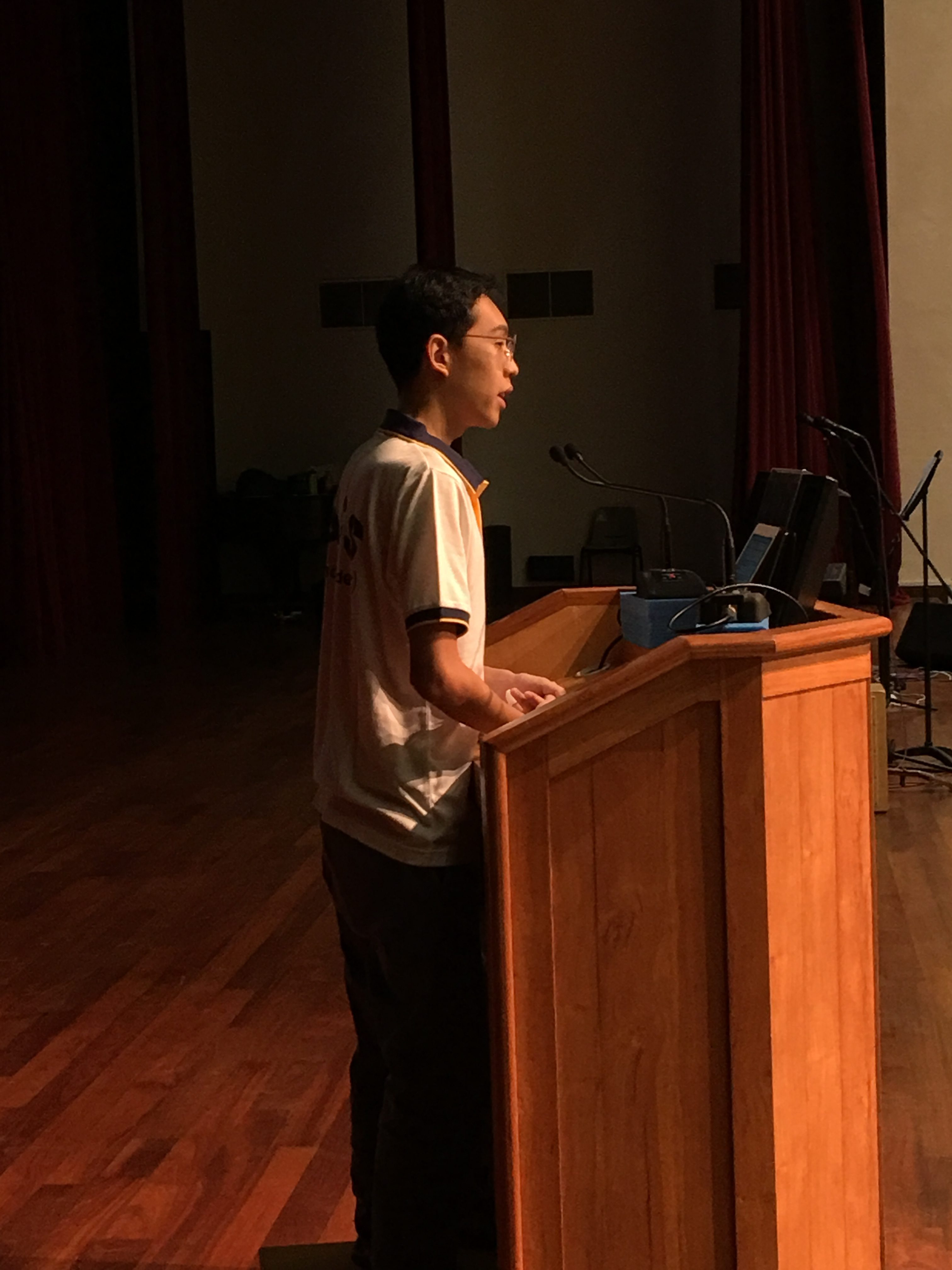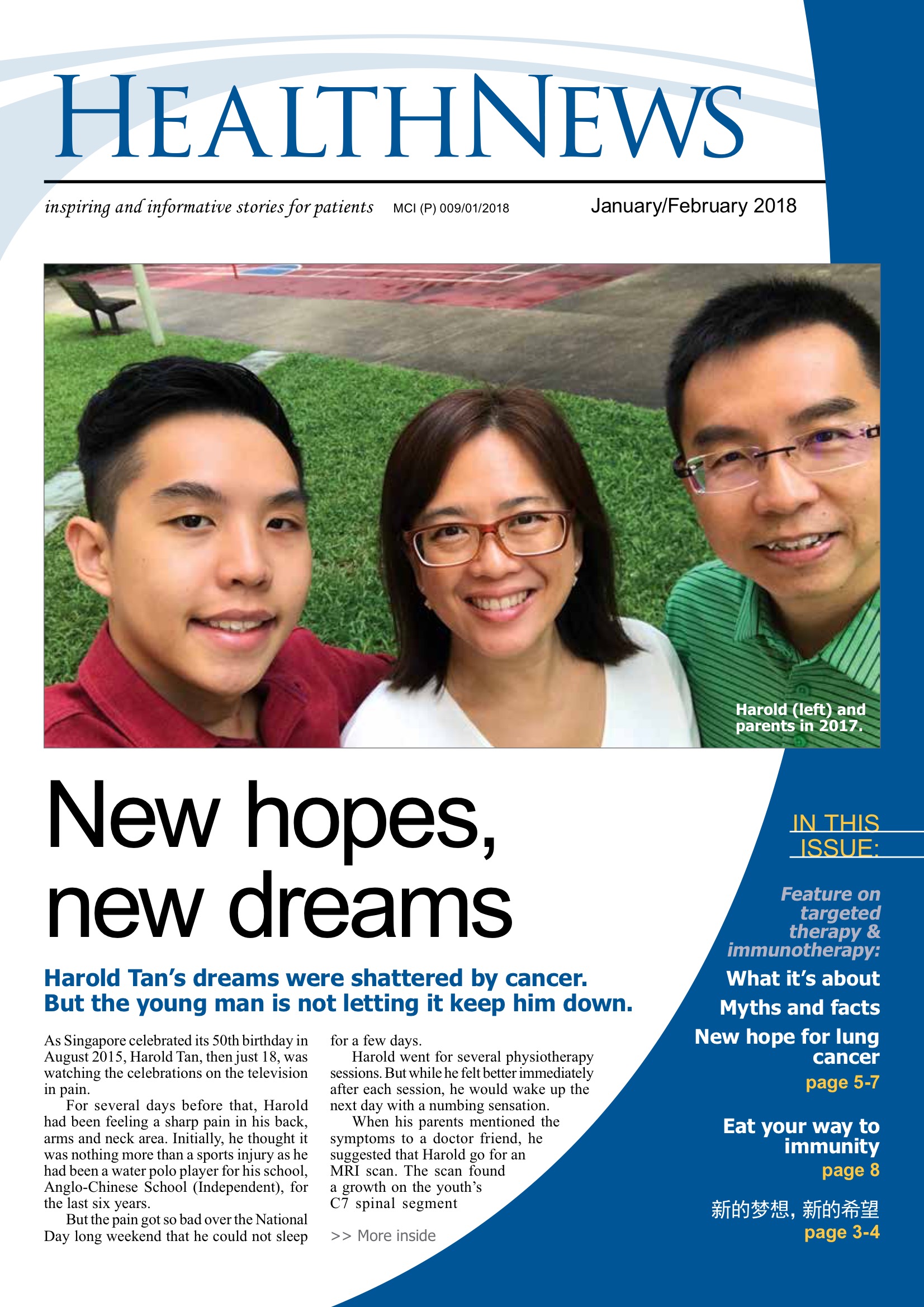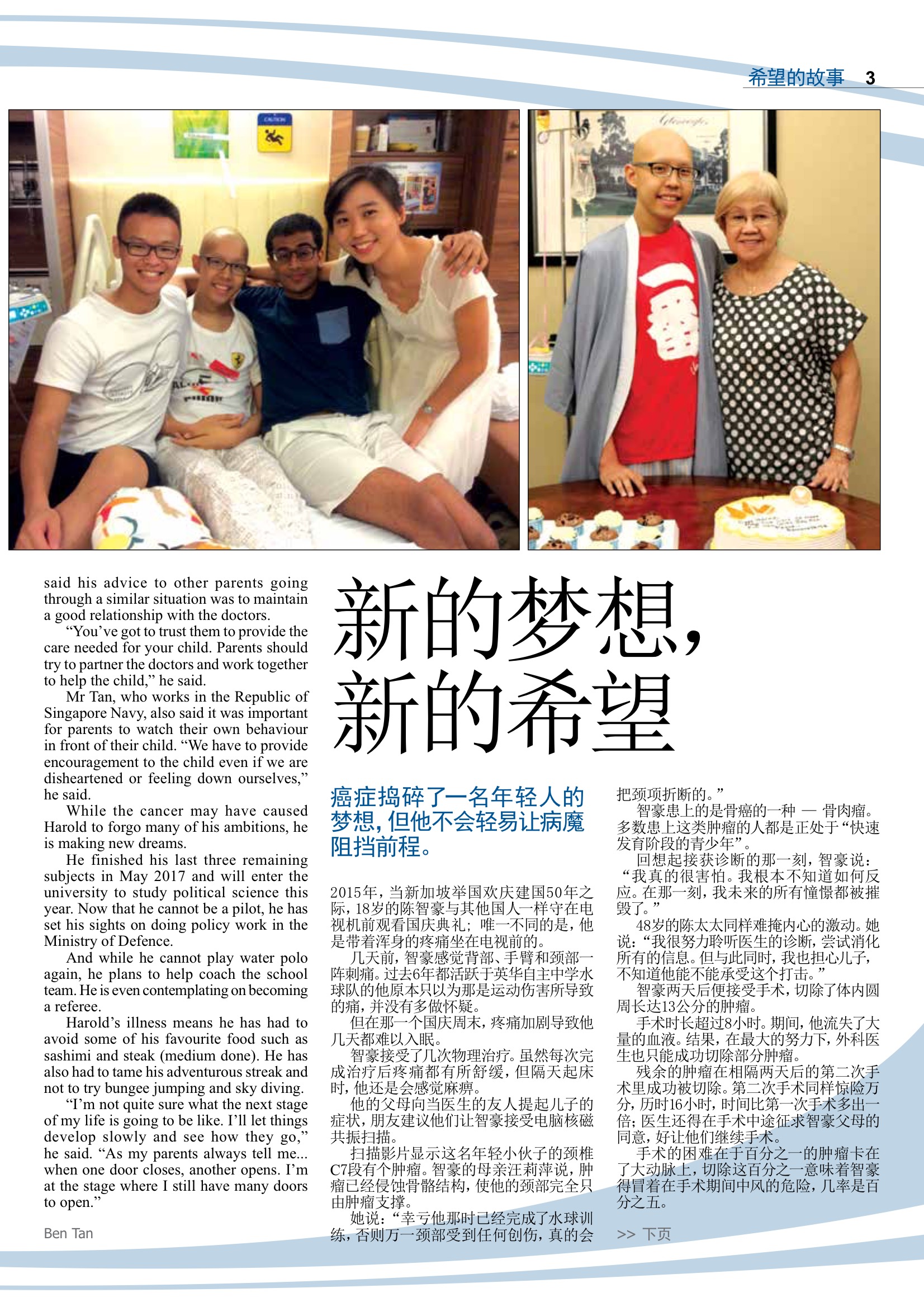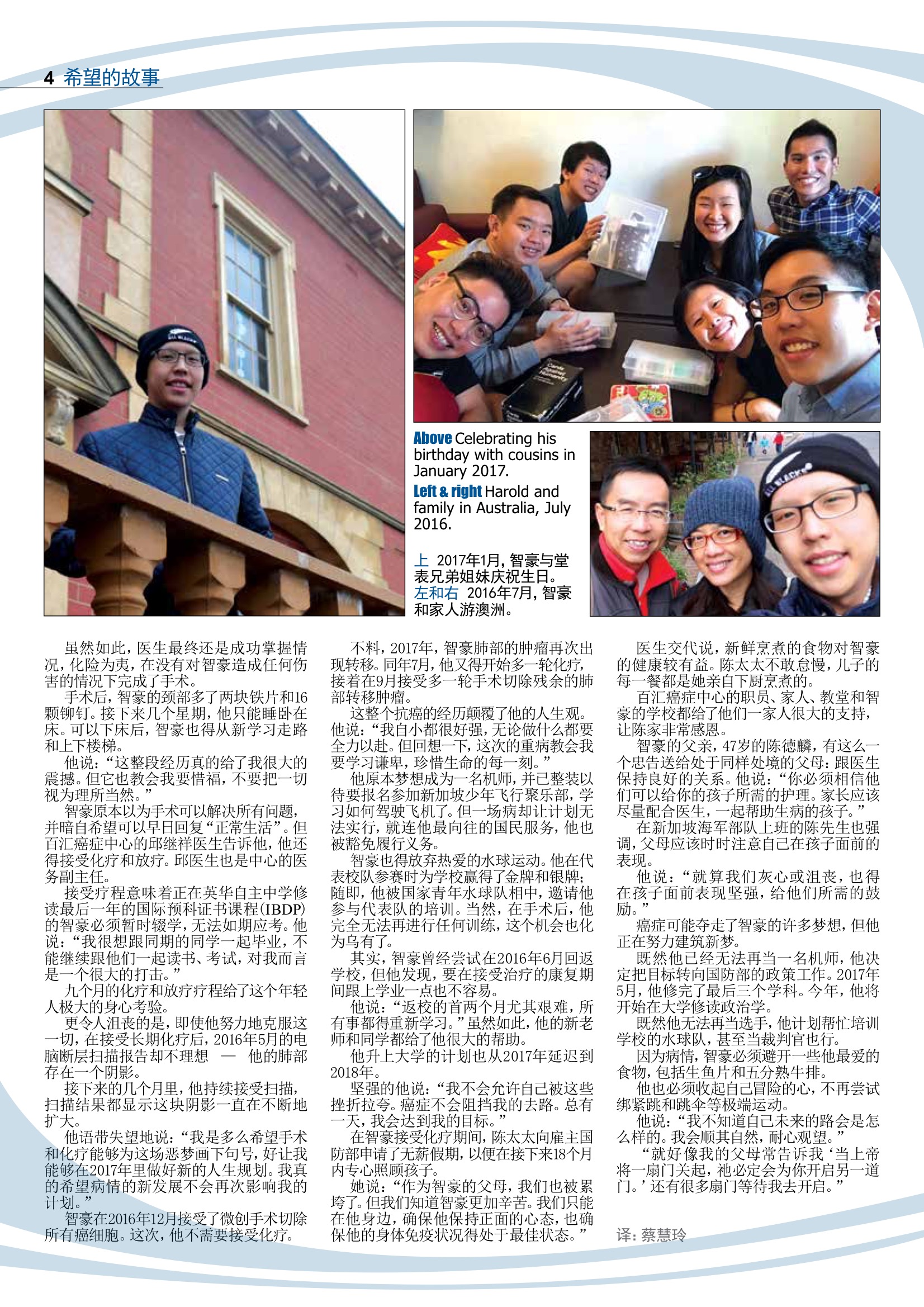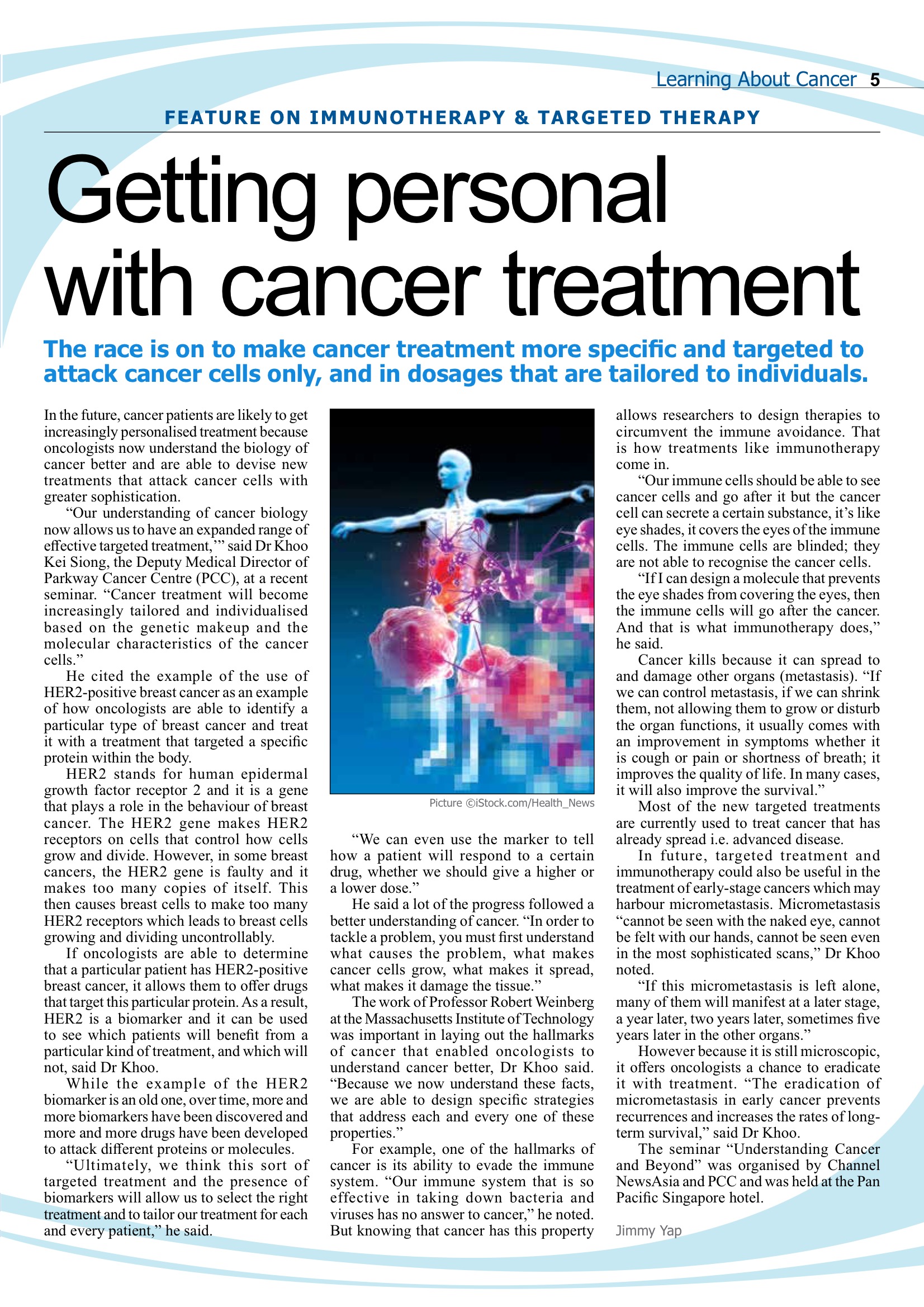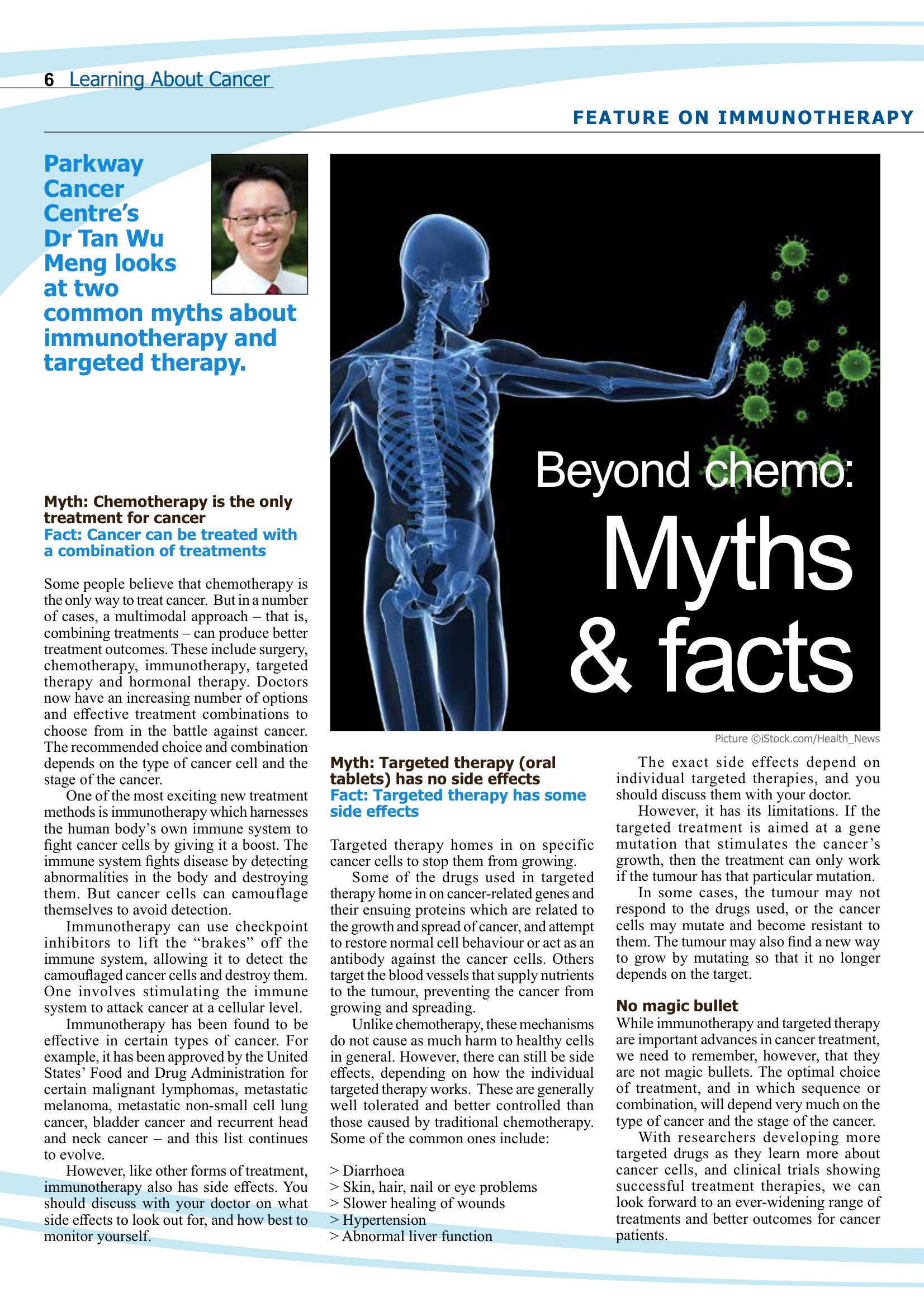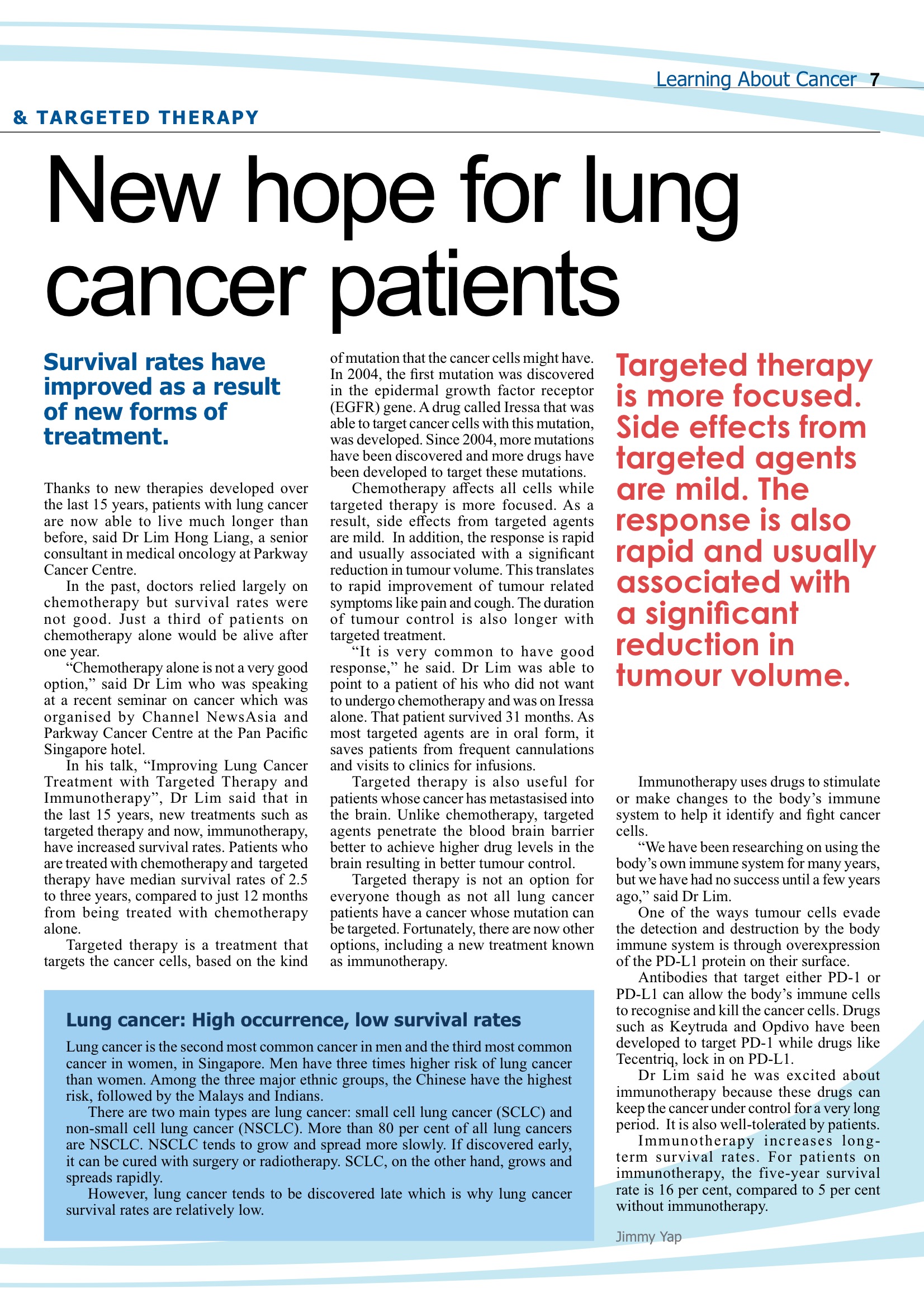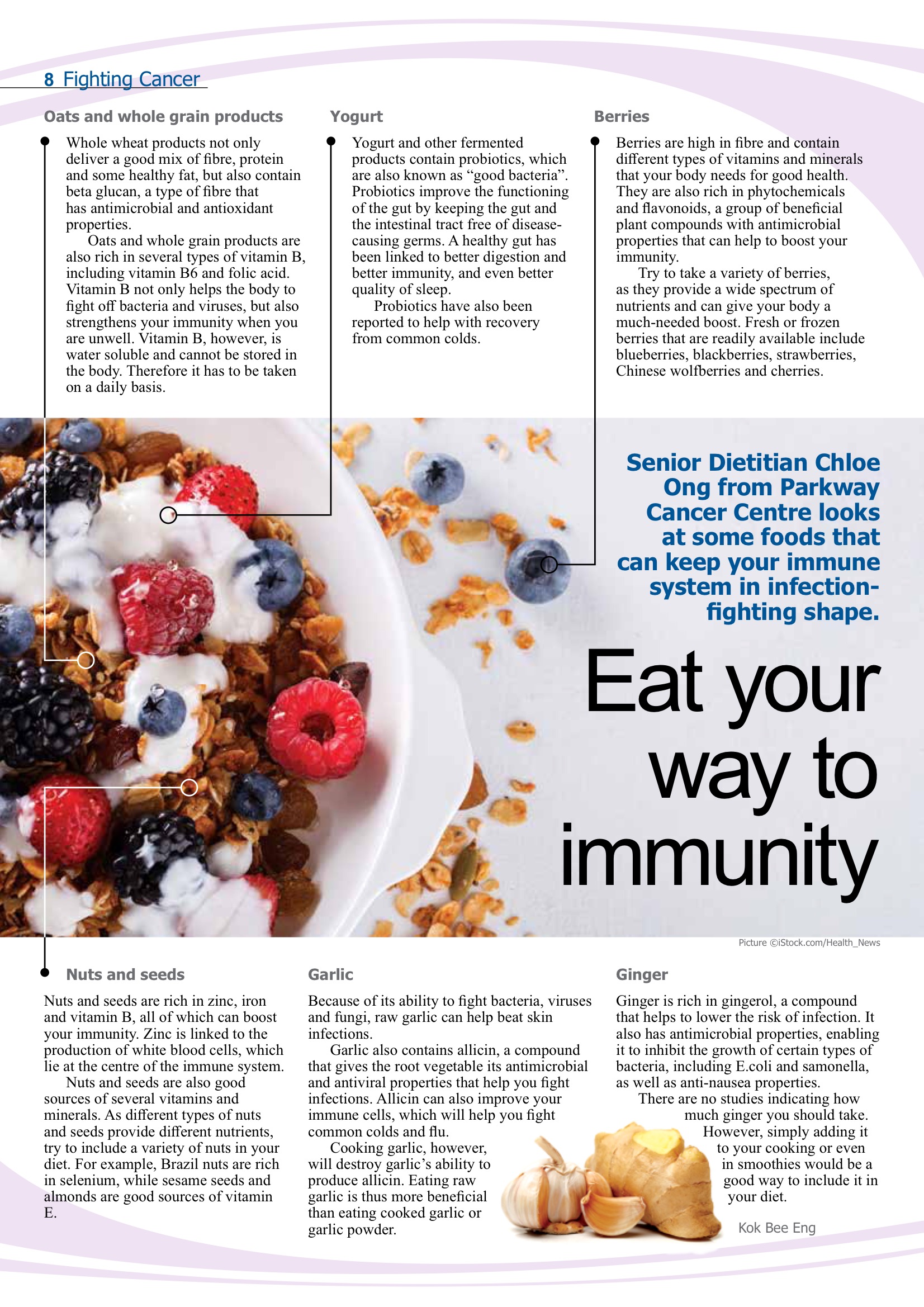Click here for the original post
C4S: Tell us your story.
Harold: I’m 20 this year, and I was diagnosed with osteosarcoma two years ago in 2015. It was around August when I began feeling numbness in my abdomen, fingers and feet. After two weeks of having these symptoms, I asked my parents to go see a doctor. We were recommended a neurosurgeon by a friend of ours, and after an MRI scan, we were told that I had a tumour pressing on my C7 vertebra.
Two days later, I went for surgery to remove the tumour. It was 8cm long: 3 cm to the front and 5cm to the back. The surgeon had initially estimated the operation to last 8 hours, but because I lost so much blood during the surgery, he had to stop after removing the back of the tumour. He closed up and operated again two days later. They then realised that a screw they’d placed during the first surgery had been misaligned, so during the second operation they had to reopen the back and re-align it, as well as removing the front part of the tumour. The doctor estimated that would take another 8 hours. When the surgery was about to end, the surgeon told my parents that there was 0.01% of the tumour still stuck at the vertebral artery and that he needed to clamp it in order to remove the tumour. The second surgery ended up taking 16 hours. After the two surgeries, which added up to 24 hours under, I had to be hospitalised for three weeks. Because I was bedridden for the whole time, I then had to learn how to walk again. I’d lost 10kg of muscle within that time.
C4S: When did you realise something was wrong?
Harold: If we track back to January, about 7-8 months before I was diagnosed, I was having a lot of muscle pain in my back. At first I thought it was because of water polo training…that it was just a sports injury. But I remember in April, after a big water polo competition, still having these aches and pains in my neck and shoulders. I thought to myself that I’d just rest for a few months and the pain would improve, but it didn’t. I went to a sports therapist, a physiotherapist, I got Chinese massages, and everyone said it was just a muscle tear. It’s only when I began to feel numbness in my hands that I told my parents we should see a doctor.
C4S: How did you take the news?
Harold: When I first got the news, I was a quite relieved to finally find out the root cause of the problem. At the same time, I was disappointed and shocked. I thought to myself “How can this happen to me? I’m only 18 years old”. I had plans to join the armed forces and become a fighter pilot. I’d passed the medical tests and was all ready to join the forces and become a pilot. I also needed to complete my final high school exams in November, and so was worried as to how this incident would impact my immediate future and my life. At first I thought it’d be an 8 hour surgery and then it’d be done and I’d be back to normal. But then I found out I couldn’t do anymore contact sports ever, which meant no more water polo. It was really hard to take that in since I’d been playing water polo for about 6 years and I’d been a swimmer since I was 5 years old.
C4S: How often did you go into hospital?
Harold: I started my treatment in October 2015 and finished in June 2016. It lasted about 9 months, and I did 7 cycles of chemotherapy. Initially it was quite difficult because I was going to the hospital every week, staying there for 3-4 days, and then the drugs would kick in and I’d have all these side effects: hair loss, nausea, headaches and restlessness. My taste buds also changed. Ketchup tasted really metallic to me. So at first it was difficult to adjust. I also had to do radiotherapy on top of chemotherapy. I had a total of 28 radiotherapy sessions, and then developed more side effects because of it. I had ulcers in my throat, so it was hard to swallow or eat.
C4S: What’s your favourite memory at hospital?
Harold: It was around the end of my treatment. When people had asked me how I was planning on celebrating, I answered that all I wanted to do was go home, lie on my own bed, feel the relief and sleep. But then on my last day, my family and friends threw me a surprise party at hospital. They’d brought balloons and cake. I’m the type of person who loves surprises, so I was really happy to see the friends who had journeyed with me and my family members there, and to celebrate the end of this long, tiring journey with them.
C4S: What was the toughest part of your journey?
Harold: One of the hardest times was actually towards the end of my treatment. A lot of people may wonder why I say this. You’d probably assume I’d be happy because my treatment was about to end. But if I were to give an analogy, it would like sitting for an exam when you’ve sat all the papers on the Friday and you just have one paper on the Monday. All your friends have already finished, and you just have Saturday and Sunday dreading the last paper. I knew I was close to the end but I still had to do the treatment. At that point, I was also administered a new drug which lowered my red blood and platelet count was extremely low, so I had to have a blood transfusion. There was still so much ahead of me despite being so close to the end.
C4S: Were your friends supportive?
Harold: My school is very family orientated, in that if someone has an incident, we’ll all gather around to help that one person. When I was first diagnosed, the very same night that I was administered into hospital in August, my class mates came over and my school teachers came to visit me. Even after the surgery, they all came to visit. My friends were also all studying for their end of high school exams and to be honest I wasn’t expecting any of them to come in, as I wanted them to focus and do well. It really touched me when they went out of their way to see me. I felt very blessed to have a close group of friends who supported me.
C4S: How did it feel to reintegrate into school life?
Harold: I came back to school after not studying for about a year. My memories of all the subjects was super limited, so I couldn’t remember much. But a lot of my friends and teachers went out of their way to help me. They’d stay after school hours to help. There were also friends who said they respected and admired me. I got this a lot ever since the treatment started. I think it’s a very unique experience and it’s very rare for teenagers to go through cancer. But even when I was with friends, I wouldn’t let it affect me negatively. I tried to turn it into positive energy. I don’t try and get sympathy or pity. Instead I use it in a way to inspire others.
C4S: Did you ever feel the need to help other patients through your positivity?
Harold: Yes, I’d asked my doctors what I could do to help and they said that whenever new patients came in, that I could share with them my story, and tell them to always be positive. The kids who come in are usually between 12 and 16 years old, so I think it’d be even scarier for them to go through treatment. I would try to calm them and give them good advice: stay positive and know that everything will come to end. No matter how long the treatment is, from 6 months to 2 years, it will end.
C4S: Who helped you get through sarcoma?
Harold: There were times during treatment that I would break down in front of my parents and I think, if not for them, I wouldn’t be who I am today. They encouraged me, they went out of their way to help me. If I had cravings and really wanted to eat something, they would travel wherever to get it and bring it back to me. I’m really thankful to my parents for helping me and journeying with me. People say you might run the race by yourself, but the support is equally important.
C4S: Do you think sarcoma changed you as a person?
Harold: I think it actually helped me quite a bit to become more confident. I used to compare myself to other people. I used to doubt my identity, which is not a very good thing to do. But after the cancer happened, I thought to myself ” Will I be disadvantaged in any way?”, but after going through treatment and everything, I think it helped me to be more confident. Especially after all my friends told me they respected me. I didn’t ever think I could ever make such an impact on my friends. To know I could influence someone’s life and encourage and inspire them helped a lot with my confidence.
C4S: How do you feel about your scars?
Harold: I’m not ashamed of them. In a way, they’re battle scars, and they say men with scars look cool (laughs). I can say I fought a tiger or something. So when people ask me what happened, I’m not afraid of sharing my story.
C4S: What do you want to be when you grow up?
Harold: I’d wanted to be a fighter pilot for a long time, mainly because of the adrenaline rush. Both my parents are in armed forces and they’d inspired me. But after the surgery, my doctor told me I wouldn’t be able to be a pilot anymore, as I’d no longer be able to do vigorous exercise. I was heart broken and lost. It took some time before I figured out what I wanted to do after hearing the news. I still like the military path, so I’m now thinking of going into the ministry of defence and perhaps do defence as a cadet officer or be in defence policy. I’m also looking into joining the airforce and going into research and technology. Instead of flying the plane, I could design it.
C4s: What advice would you give to people who are currently in treatment and who feel like giving up?
Harold: Honestly, I had moments where I also felt like giving up, when times were really tough. At one point of time, I was very confused and lost with what I wanted to do in the future, but I think talking to family and seeking their advice helped a lot. That’s when your family members will talk to you more, they’ll check up on you. If you keep it to yourself, and don’t share your worries with people, I feel like your family will feel responsible for the mental pain you’re in. But if you open up to them, it might help you as well as your family in dealing with your feelings and struggles.
A VERY BIG THANK YOU TO HAROLD AND CHARLES STAUFFER FOR MAKING THIS PROJECT HAPPEN
UNDER : HEROES
